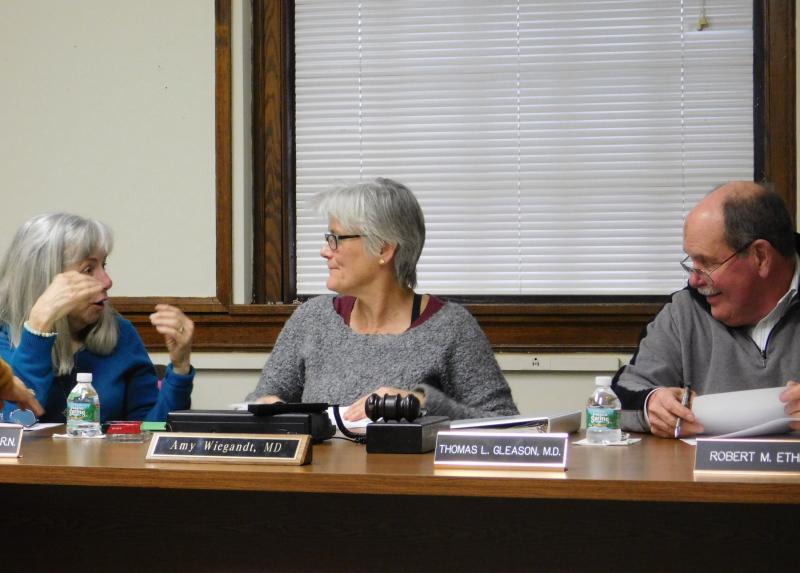Board of Health approves syringe collection program
The Board of Health has given its support to a program designed to streamline the safe use and disposal of syringes, but final approval from the state is still required.
On Wednesday, Wareham Public Health Nurse Connie Dolan explained that she’d heard of a promising syringe disposal program offered in Fall River by the Seven Hills Foundation, a health and human services organization based in southeastern Massachusetts.
Seven Hills’ Director of HIV Services Connie Rocha-Mimoso said one of the biggest parts of the program is a monthly cleanup of syringes dropped in public places, such as parks, which are then disposed of safely.
Board of Health Chair Amy Weigandt kicked off a series of questions from the board to Rocha-Mimoso, asking how organizers decide where to focus their efforts.
“We carry out monthly data assessments and work in conjunction with the police force,” Rocha-Mimoso said. “Where we’ve noticed higher incidents, or where the police tell us there have been a high number of overdoses, we focus on those areas first.”
“How do people know how to contact you?” asked board member Thomas Gleason.
Rocha-Mimoso explained that Seven Hills advertises ahead of time, including posting schedules so that people know where to find Seven Hills’ mobile van.
“The big areas around here would probably be Rosebrook, Tobey, Turning Point and some of the housing units,” she said. Rocha-Mimoso added that the collection van was simply marked "Seven Hills" so it doesn't draw attention to the program.
“What about people from backgrounds you might not expect - people living in nice houses, who aren’t lacking for money?” Weigandt asked.
“We do have a nurse on staff whose job is to connect with private physicians, and make them aware of our services,” Rocha-Mimoso replied.
“How many people do you reach?” asked board member Glenn Monteiro.
“A lot,” answered Dolan. “People come in all the time wanting to know when the van was coming. That’s not just users, it’s also people who are connected to users.” She also noted the prevalence of opioid abuse amongst the elderly. “You’d be surprised how many older people are affected,” said Rocha-Mimoso.
Board member Catherine Phinney agreed.
“They’re arthritic, they’re given opioids as pain meds, and then they can’t get off of them. Everybody is affected,” said Phinney.
“I think this is helpful,” said Weigandt, “and truthfully something we need.”
The board approved the idea. An application will now be submitted to the Department of Public Health. The agency must give the final approval to the program before it comes to Wareham. If approved, Rocha-Mimoso expects that it will be able to start up sometime in early April.













